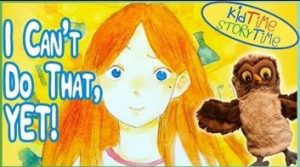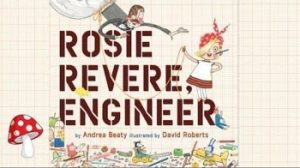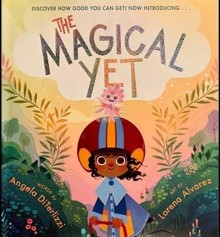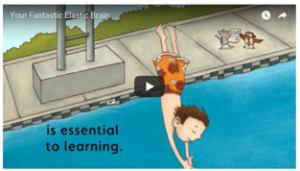The power of YET
At Grace Darling C of E Primary School, we know that pupils who have a positive attitude towards their learning will make good progress and be successful. As a result, we have started our journey of developing a culture of “Growth Mindset”. We hope this page will help you to support positive attitudes towards learning and high self-esteem in children at home, just as we are doing in school.
We believe that we can all become better thinkers and learners – with practice. The term ‘growth mindset’ refers to a way of thinking, learning and taking on challenges. A growth mindset is the belief that we can improve our intelligence, ability and performance if we work hard, learn from our mistakes and willingly accept feedback. The opposite, a fixed mindset, is the belief that a person’s intelligence, ability and performance are set in stone and cannot be changed.
At Grace Darling pupils are taught how their brains work and how new connections are formed when we try new things and practice them, over and over. In the classroom, our children are introduced to growth mindset by helping them to think about the brain as a muscle – and like other muscles in our body. The more we use it, the more it develops and grows. We can help our brain to do this. Staff model and explain the benefits of practicing a new skill and that success is a product of hard work and effort. We have PSCHE lessons and assemblies about growth mindset, but most importantly, teachers and pupils have embraced the language and understand the power of YET!
No ceiling on learning
We believe that the best thing to do is to teach children to love challenges, be intrigued by mistakes, enjoy the effort, and keep on learning. For children who find work easy, we make sure that they encounter more difficult tasks. Our children recognise and value the importance of effort, persistence and embrace their mistakes as part of the learning process as what helps them improve.
The children are rewarded for effort as well as outcome and are encouraged to challenge themselves. There is no ceiling for their learning and all children are encouraged to try, even when they feel stuck. Indeed, being ‘stuck’ is seen as an important part of the learning process.
We have dedicated sessions in class to address what kind of learners we want to be and these are linked with our EYFS characteristics of good learners books.
We want all our pupils to relish challenges, respond carefully to feedback and take inspiration from others. It has been proven that having a Growth Mindset can improve children’s progress and attainment and this will help them to achieve, not only at school, but also in their future lives as adults.
Your language is as important as your mindset
| Instead of… | Try… |
| “I’m not good at this” | “I can’t do this yet” |
| “I give up” | “I’ll use some strategies I have learnt” |
| “I can’t do it” | “This is going to take some time and effort to master” |
| “I’ll never be as clever as them” | “I’m going to find out how they do that” |
| “This is too hard” | “If it’s hard it means I’m learning” |
At Grace Darling we remember:
- It’s always OK to make mistakes – we learn from them
- We never give up! We try a different approach, or use a different strategy
- We learn from each other
- We don’t compare ourselves with others, but we do learn from others
- We challenge ourselves – which really helps us make progress
- We take risks – we don’t limit ourselves by taking the easy option
- We join in as much as possible – and we learn much more by being involved
- We remember that the brain is making new connections all the time – the only thing you need to know is that you can learn anything!
The way in which we encourage children to learn and explore is vital to their success, not only at school but at home as well.
How you can help at home
- Praise the amount of effort your child is putting into things rather than how well they are doing.
- Talk to your children about their brain is like a muscle – the more they use it, the stronger it gets.
- Encourage your children to not give up if they are finding something difficult – perseverance is key!
- Challenge yourself and your children to try something new.
- Change your own mindset – use growth mindset language and the power of yet at home.
- Share stories through books or online which encourage growth mindset attitudes.
- Look for the positives in everyday – I can…
Stories to share at home
- Giraffes Can’t Dance
- I can’t do that, yet
- Ish
- Rosie Revere Engineer
- Sesame Street presents Growth Mindset
- The Dot
- The Magical Yet
- Your Fantastic Elastic Brain









